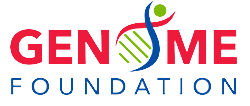New Born Screening: Early Health Checks for a Brighter Future
Introduction
Newborn screening is a crucial step in ensuring the health and well-being of your baby. Through simple, non-invasive tests, doctors can detect potential health issues early, giving your child the best chance for a healthy start in life.
What is New Born Screening?
Newborn screening is a series of tests performed shortly after birth to check for a variety of serious but treatable conditions. These conditions may not show symptoms immediately but can have severe long-term effects on your baby’s development. Early detection through newborn screening allows for timely intervention, often preventing or minimizing health problems in the future.
Why is New Born Screening Important?
The importance of newborn screening cannot be overstated. Early diagnosis of certain conditions allows for early intervention, which can improve the quality of life for your baby. Some conditions that are detected through newborn screening may be life-threatening or cause developmental delays if left untreated. The screening gives parents peace of mind, knowing that their child has received a comprehensive health check early on.
Common Conditions Detected Through New Born Screening
Newborn screening tests vary by country, but they typically screen for the following conditions:
Metabolic Disorders: Such as phenylketonuria (PKU) and hypothyroidism.Genetic Conditions: Including cystic fibrosis and sickle cell disease.Hormonal Imbalances: Such as congenital adrenal hyperplasia (CAH).Hearing Impairments: Early identification of hearing loss can ensure timely intervention and speech development.Heart Conditions: Such as critical congenital heart defects (CCHD).
How Does New Born Screening Work?
Newborn screening is typically done within the first few days of life. A small blood sample is taken from your baby’s heel (heel prick test), and the sample is sent to a laboratory for analysis. In some cases, additional tests, such as hearing or heart screenings, may be performed.
While the process is quick and virtually painless for your baby, the results are incredibly valuable. If any condition is detected, your pediatrician or healthcare provider will guide you on the next steps for treatment or management.
The Benefits of New Born Screening
The benefits of newborn screening are immense and include:
Early Detection and Intervention: Helps in diagnosing conditions before symptoms appear, allowing for early treatment.Better Health Outcomes: Timely treatment leads to improved health outcomes, reducing the risk of severe complications or developmental delays.Peace of Mind for Parents: Knowing your baby is healthy gives parents confidence and reassurance.
Prevention of Long-Term Effects: Conditions that might cause life-long disabilities or developmental issues can be treated effectively with early diagnosis.
Conclusion: Ensuring the Health of Your Baby
Newborn screening is an essential step in safeguarding the health of your baby. By identifying potential health issues early, it allows for timely treatment and improves long-term outcomes. If you have any concerns or questions about the newborn screening process, don’t hesitate to speak with your healthcare provider.
For the best start in life, newborn screening is a simple, yet vital step in ensuring your baby’s well-being.


